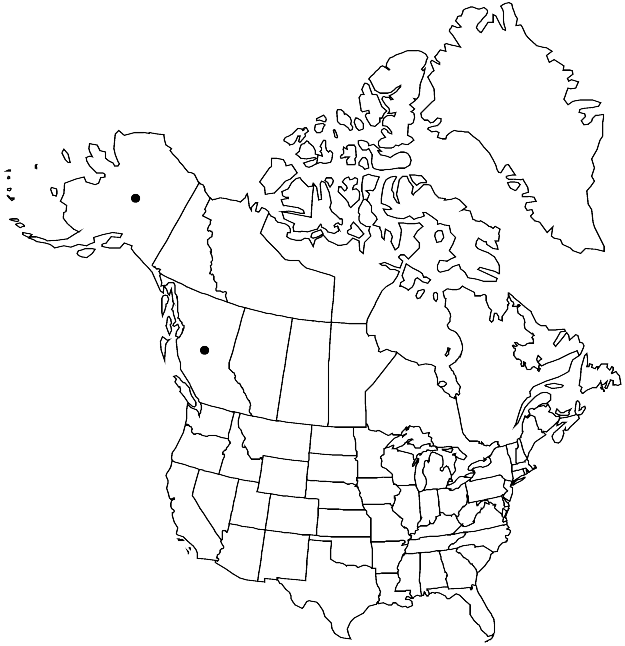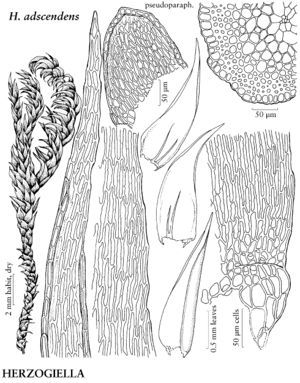Difference between revisions of "Herzogiella adscendens"
J. Hattori Bot. Lab. 37: 609. 1973.
FNA>Volume Importer |
(No difference)
|
Revision as of 04:26, 27 July 2019
Plants in dense mats, yellowish. Stems 3 cm, 1.5–3 mm wide, creeping to ascending; pseudoparaphyllia foliose. Leaves imbricate to somewhat spreading, often somewhat falcate when dry, not plicate, 1.5–3 × 0.4–0.6 mm; base distinctly short-decurrent; margins serrulate to entire; alar cells rounded to oblong, abruptly inflated, 14–70 × 14–28 µm, hyaline; basal laminal cell walls pitted, sometimes to mid leaf; medial cells 33–85 × 4–7 µm. Sexual condition dioicous. Seta yellowish, 1.1–1.5 cm. Capsule inclined, light brown, cylindric, slightly curved, 2.5–3 × 0.3–0.5 mm, not or little contracted below mouth when dry; operculum conic to conic-apiculate, 0.3–0.4 mm. Spores 17–22 µm.
Phenology: Capsules mature late summer.
Habitat: Tree trunks, rotten logs, stumps, humus over acidic cliffs
Elevation: low elevations (0-90 m)
Distribution

B.C., Alaska, Asia.
Discussion
Herzogiella adscendens, previously included in Campylium (Sullivant) Mitten, is the most recent addition to Herzogiella. It differs from the other North American species of Herzogiella by its dioicous condition, serrulate to entire leaf margins, presence of foliose pseudoparaphyllia (sometimes difficult to find) and perichaetial leaves that are about twice as long as the other leaves. The capsules are very rare.
Selected References
None.
